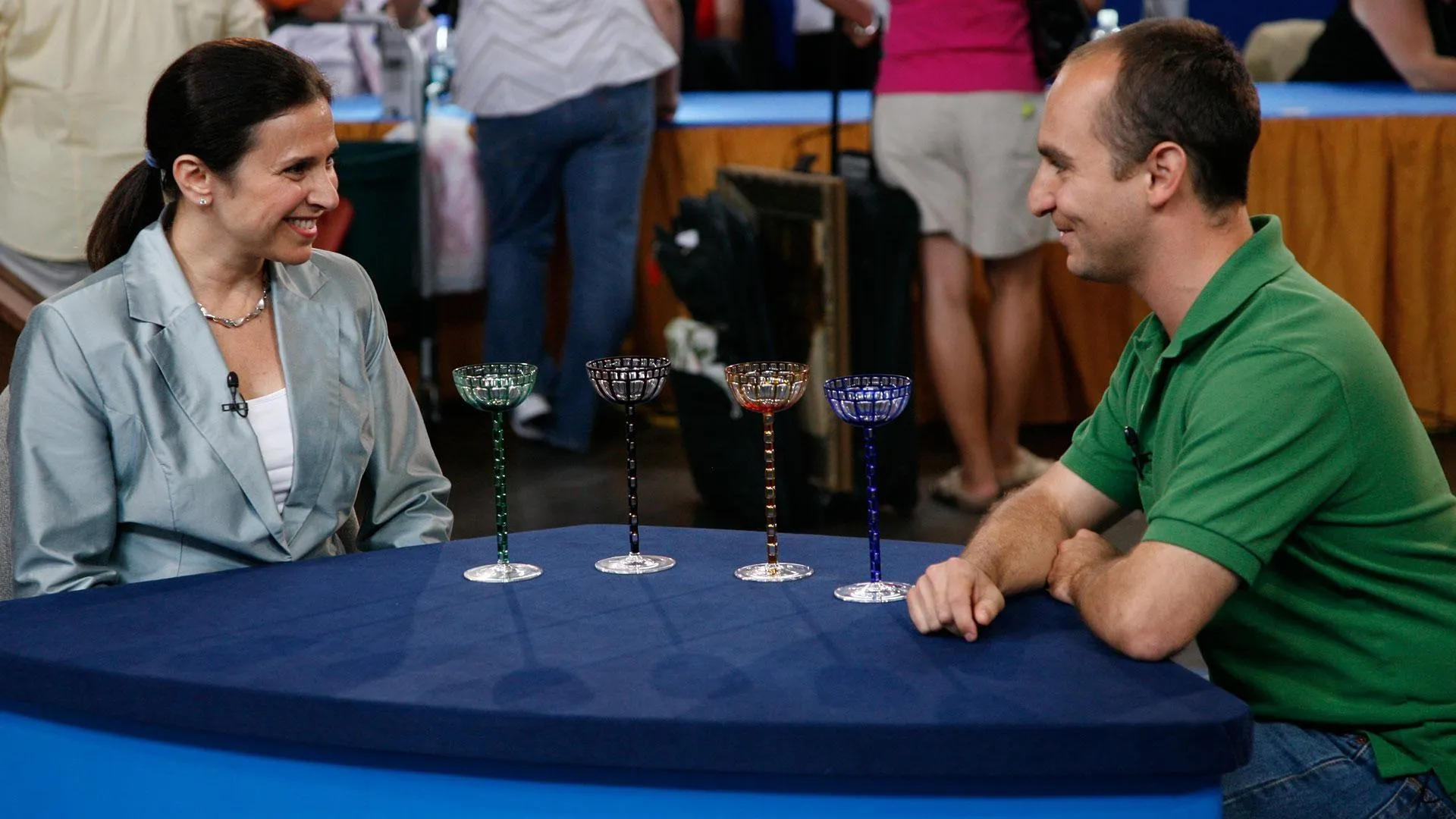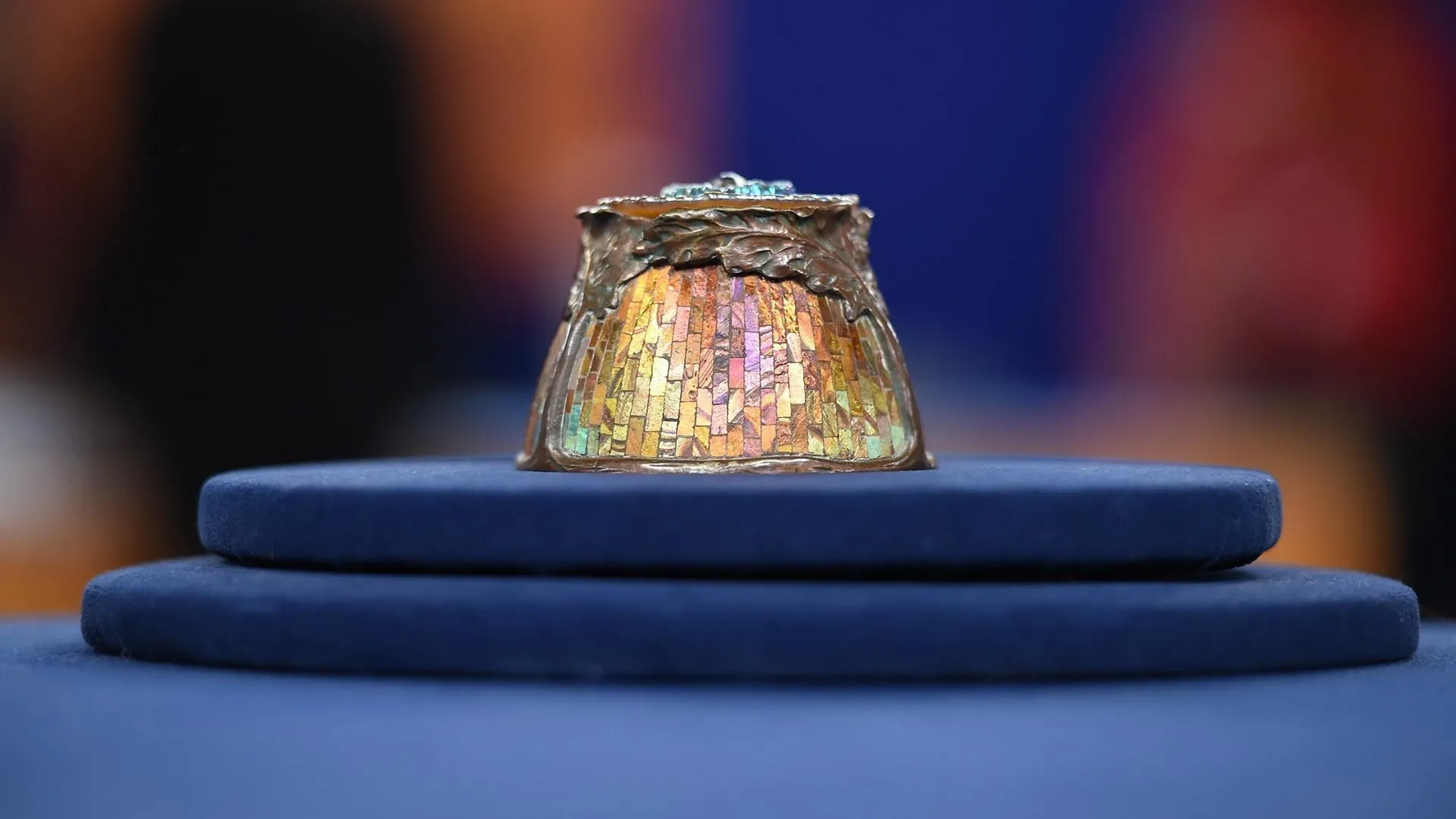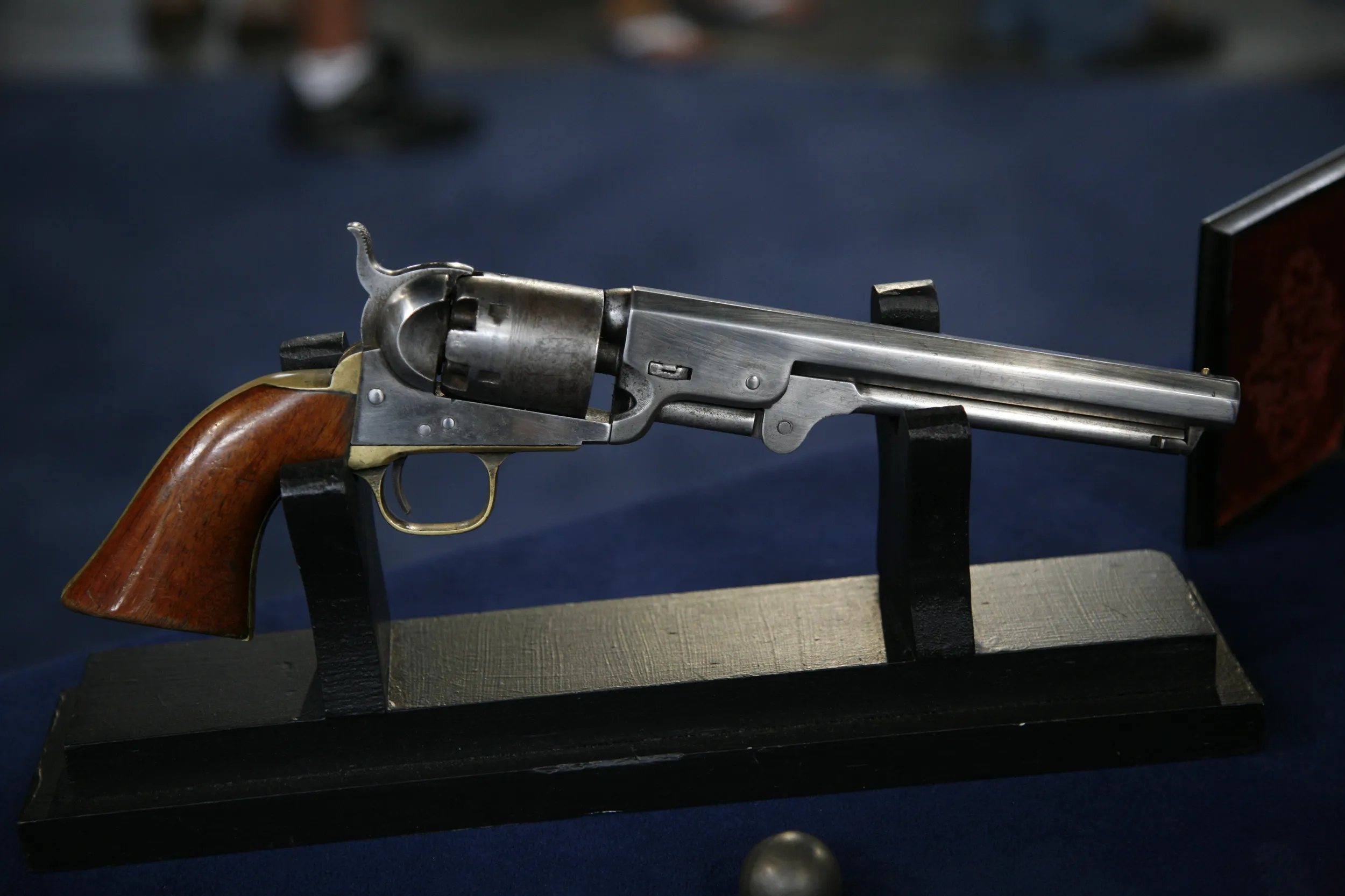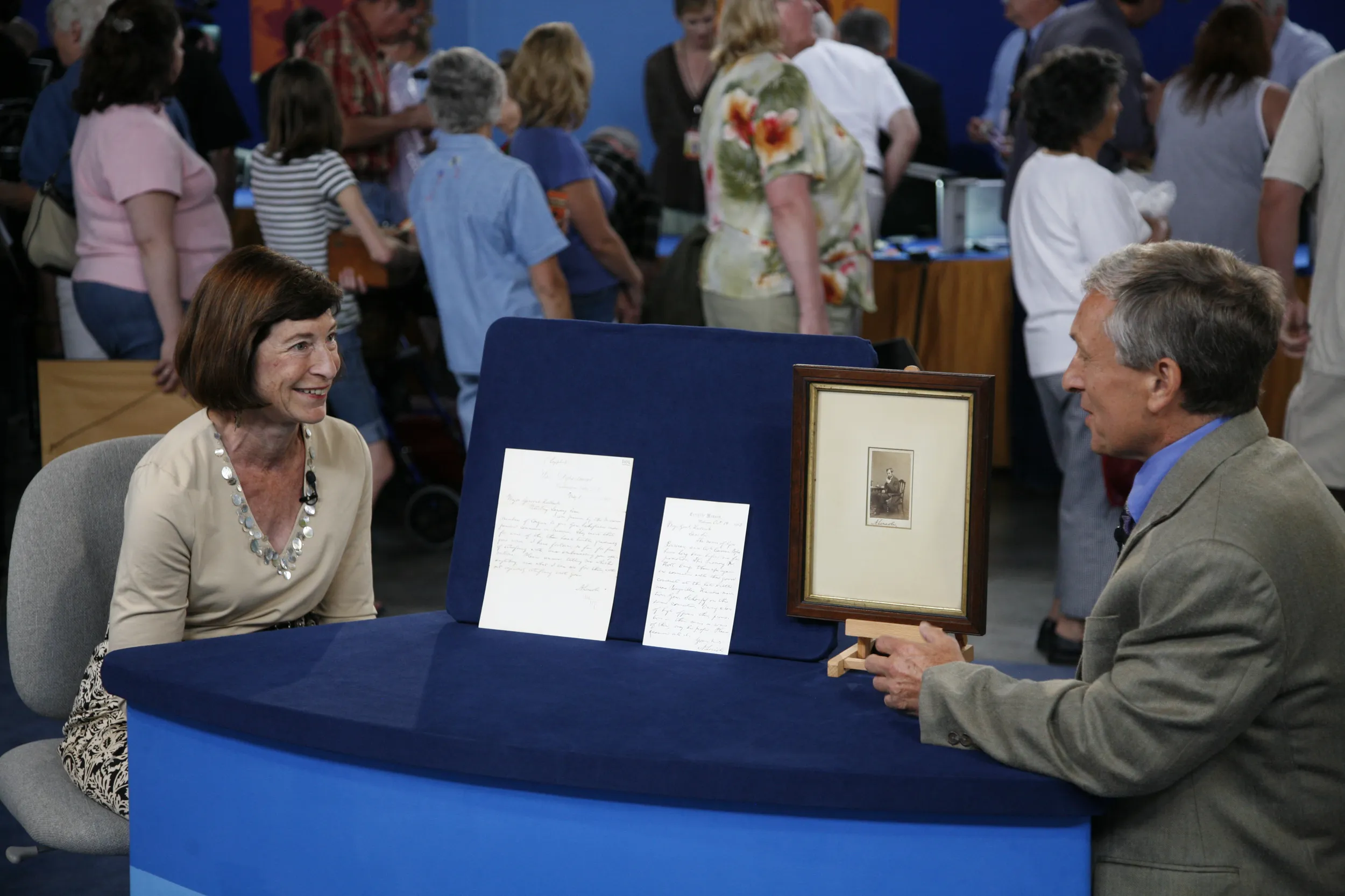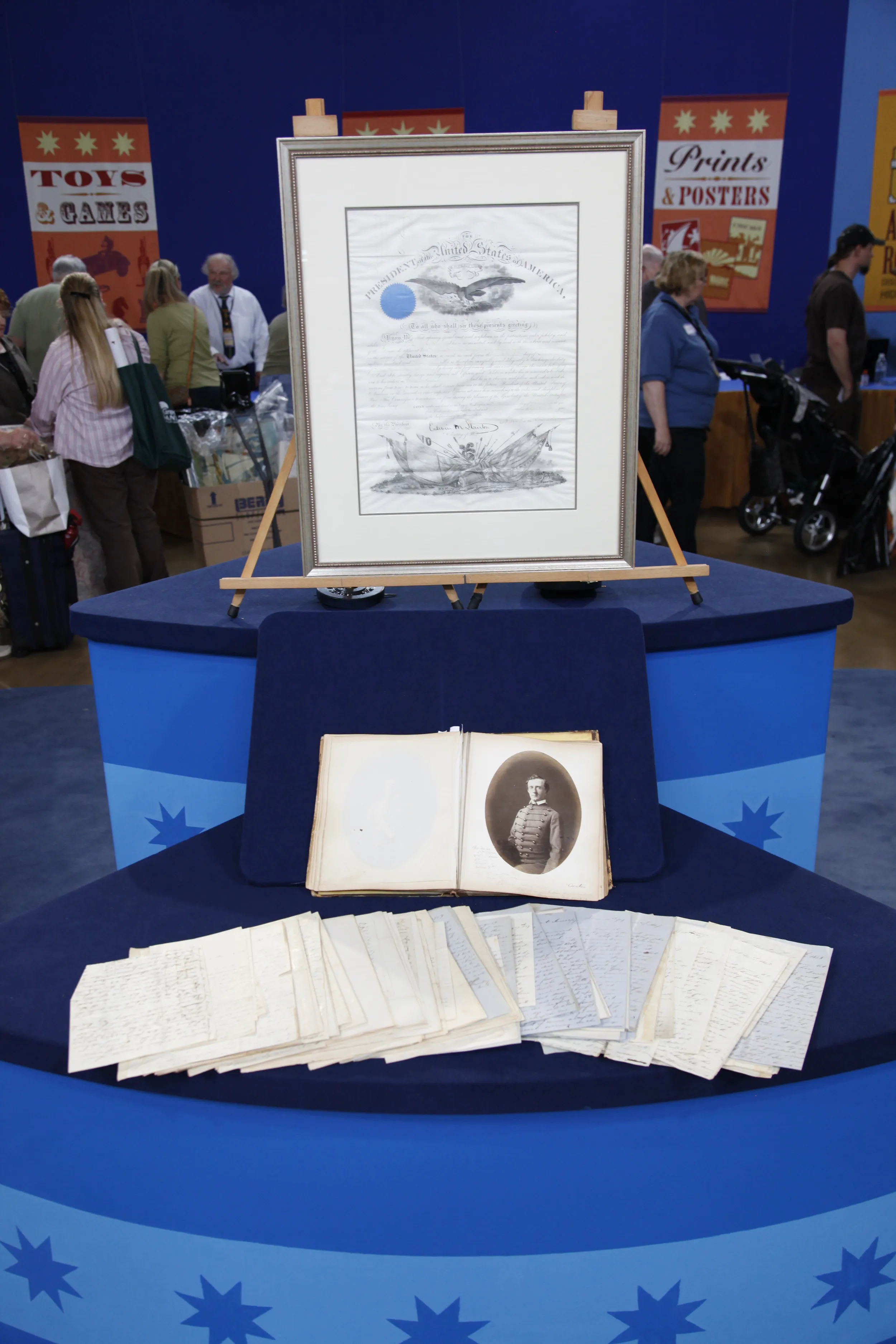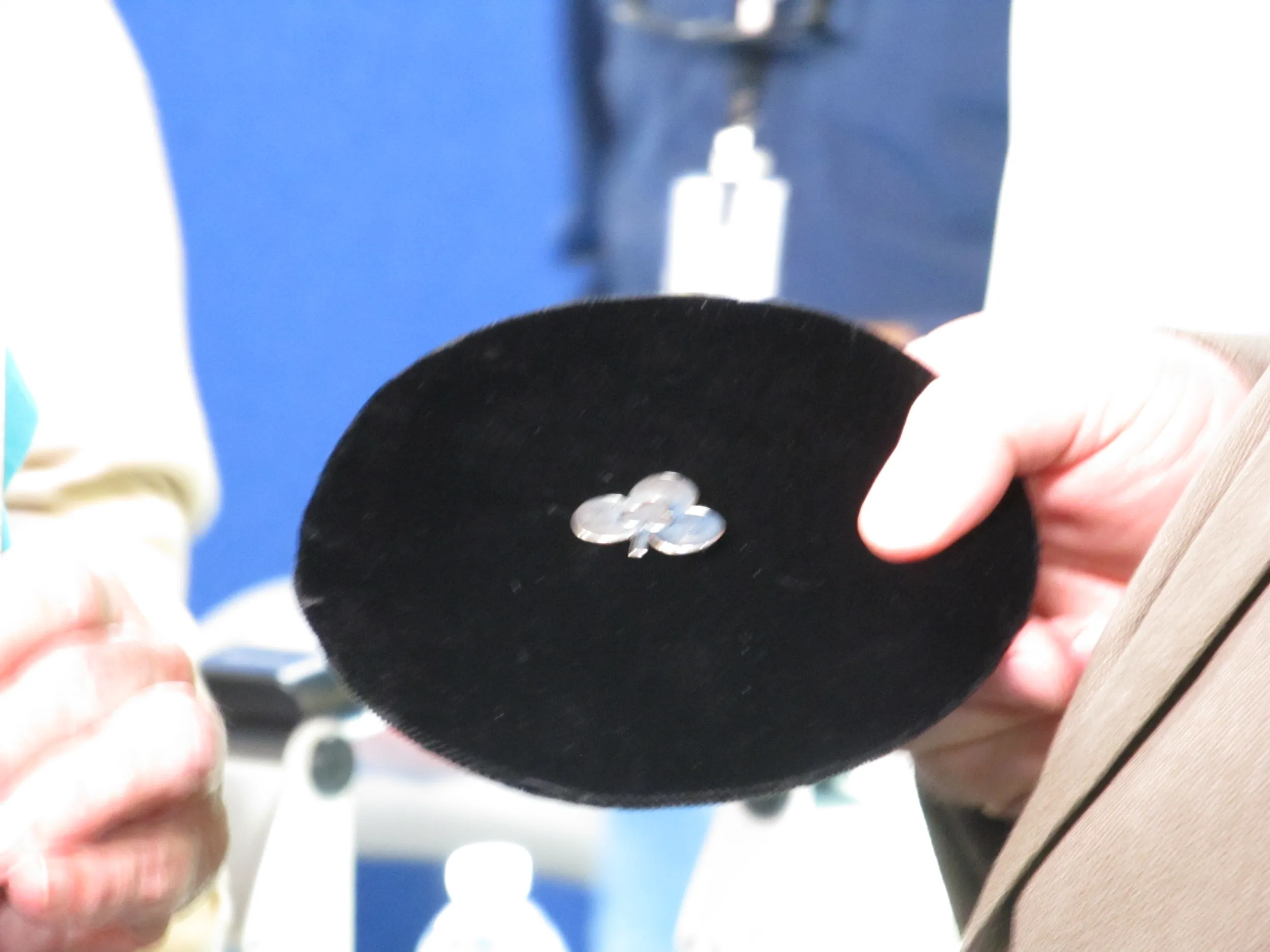GUEST: I brought this Civil War drum. It's from my great-grandfather, from the Rhode Island area, and a certificate that shows that he was actually the drummer in the Civil War.
APPRAISER: Right. And, if you notice, it mentions that he is a drummer of Company L in the Ninth Regiment of Rhode Island Infantry. And it's an interesting regiment that he was in. The Ninth was raised because they were afraid that Washington, DC, would be occupied by the Confederacy. In May of 1862, General Stonewall Jackson had had decisive battle victories at Winchester and in the Shenandoah Valley. The next step, they were right at Washington, DC. And so President Lincoln says, "We've got to have regiments to defend the city." He sends a letter to the governor of Rhode Island, and they call up the Ninth Infantry. They're sent there to guard Washington, DC. And if you notice, the drum also has the matching Ninth Regiment, "R.I.," for Rhode Island, Infantry, and Company L. It has everything on it that you would expect. They were only in service for three months, which is why the drum is in such beautiful condition as far as the paint. It has bright colors. It's a beautiful drum. The heads do come off. It's in need of some restoration.
GUEST: Right.
APPRAISER: If you notice, right here, we have the maker's label, from Horstmann of Philadelphia.
GUEST: Mm-hmm.
APPRAISER: One of the premier makers during the Civil War. They made things, and they also retailed items for military use. We have both of the original heads. All we're missing is, basically, the tension ropes. We have the snare on the bottom. The discharge... Has it been in the family the whole time?
GUEST: Yeah, actually, I was going through a trunk, finding things to maybe bring, and I found this only, like, a week ago.
APPRAISER: Really? Wow.
GUEST: And connected it to the drum.
APPRAISER: That's great, because it mentions in there that he is a drummer boy. Right. In the discharge. The discharges you do encounter, because every Union soldier that survived would have gotten one, and that was their ticket, in later years, to be able to draw a pension.
GUEST: Right.
APPRAISER: A lot of drums were surplus, meaning they never saw service.
GUEST: Mm-hmm.
APPRAISER: And they'll actually come out, and you won't have the regiment, you won't have the state, and you won't have the company. They would paint the basic drum, and then, once it made it into the field, the drummer boy himself, or somebody in the regiment, would add that information on it. Which personalizes the drum.
GUEST: Uh-huh.
APPRAISER: So it's, not only do we have his discharge, we've got his input on the drum. And it brings everything together.
GUEST: Yeah.
APPRAISER: It's, it's a fantastic piece. Well, I can tell by that look in your eye it's something you'd never part with.
GUEST: Oh...
APPRAISER: So what we'd be looking for is an insurance appraisal.
GUEST: Right, right.
APPRAISER: And, on a discharge, most of the time they're $100 to $200. The drum itself would need to be insured for $7,500.
GUEST: Wow. Wow.

